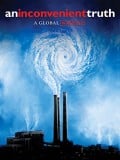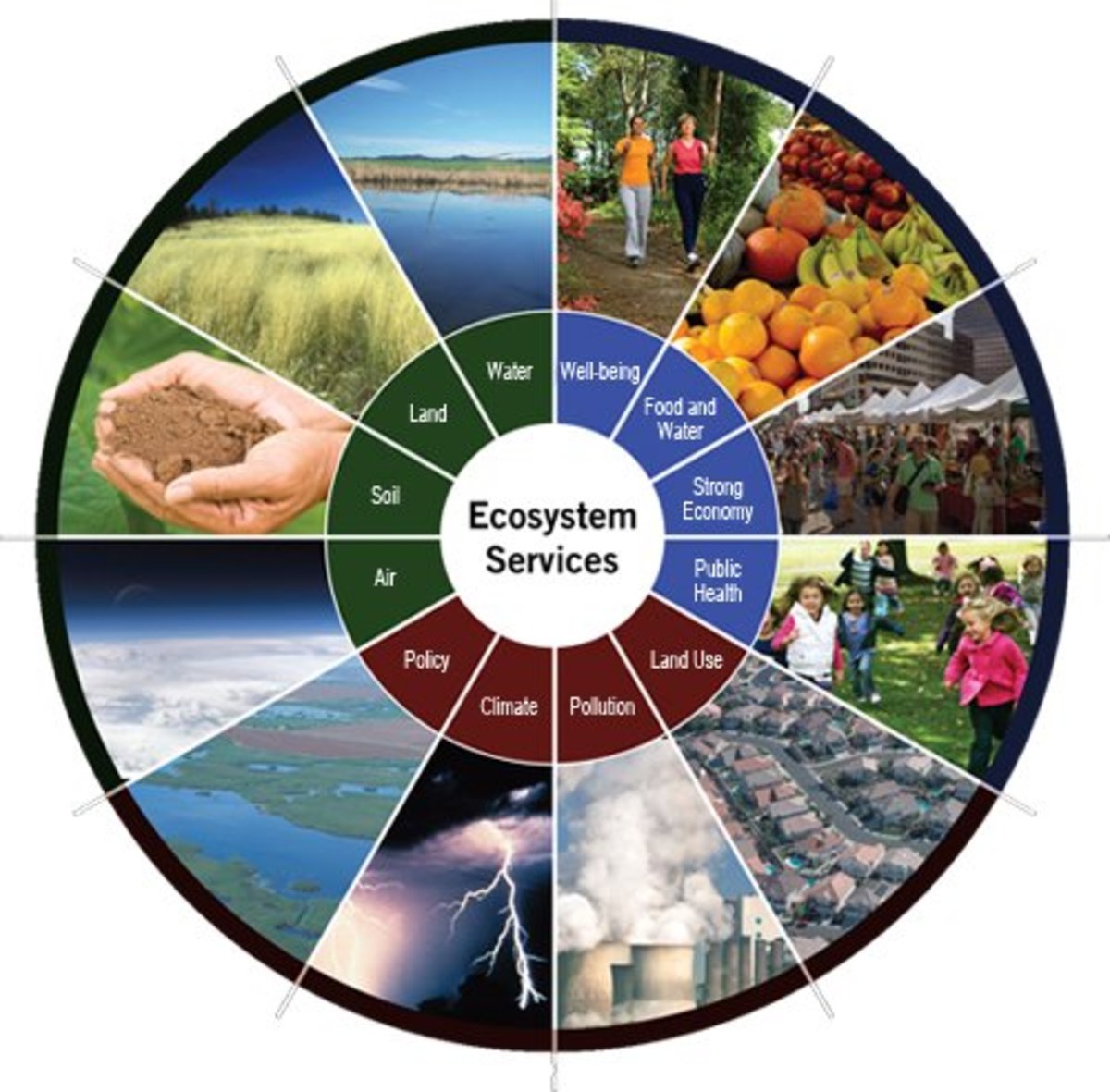Environmental Ethnics

Environmental Ethics
Environmental Ethics Surpass Human Moral by Eric J. Specht
Determining absolute righteous conduct towards one another universally can be a complicated if not unattainable task to achieve due to individuality. The analysis of one’s actions may perceive as arrogant, ignorant, ethnocentric, unintelligent, and so on. Anthropology and critical thinking may contribute to resolving expected human-to-human behaviors, but not everyone captures the interests in studding unfamiliarity or comprehends the complex differences of a particular culture or the sub-cultures that reside in a larger culture. As a result, there are many concerns and continual controversies regarding how an individual ought to act in a particular society. More importantly, according to my perception, human moral differences dictate all of Earth’s occupants and environs. which should engage international welfare concern, but ecological issues appear to be inconsequential, under minded, and of lesser value than the concern of human dispositions. Although there is an abundant amount of unresolved environmental issues, which is equivalent or less than the unsettled amount of human moral acts, the common ground that Earth’s occupants knowingly or not embrace is life. Earth’s is the essence of life; therefore, it is primarily imperative for the world’s populace to unhand our personal differences and engage in amending and establishing proper environmental ethics that all will profit from, not just particular beneficiaries.
Specie Compassion
After reading Thinking critically About Ethical Issues by Vincent Ryan Ruggiero, it is my concern that humankind is more involved in disputing the acts of right and wrong towards one another than the acts that endanger all of Earth’s species and environs. Therefore, I decided to research reliable documents provided by government, organization, and educational websites as well as documents from Proquest database on The World Wide Web to accumulate evidence that environmental ethic issues produce global concerns, and the debate of humankind’s moral of right intentions are mere subordinate concerns. In order to achieve a better understanding of their importance, the framework of my paper defines human ethics, environmental ethics, and their importance in establishing moral codes. In addition, I will provide conflicts of interest between the two regarding the environmental issue of deforestation and evaluate the reasons that proposed decisions. With the knowledge I acquired from the internet, I plan to reveal that the instability of social ethics may influence immoral responsibilities pertaining to all of Earth’s species and environs. Importantly, expose the idea that humankind may want to relinquish their differences to revise and produce proper ecological ethics to preserve Mother Earth in order to sustain life. However, my main objective is to emphasize that decisions founded upon human contentment is not the basis of environmental issues, but rather universal concerns that requires worldwide attention and responsiveness expressing what is right for all that inhabit Earth.
Ethics
There is an abundant amount of unresolved issues regarding what ought to be good human behaviors from those that are decadent. The one attribute that may be able to resolve the variation of concerns humans suffer from is ethics. Ethics refers to justifiable values of right and wrong that stipulate what humans ought to do according to self, responsibilities, culture, organizations, and governors (Velasquez, Andre, Shanks, S.J, & Meyer, 2010 ¶. 7). An individual’s conscience, intuition, emotions, beliefs, and obligations in correlation with the integrity of social systems respectively shaping and managing common moral codes contribute to instructing civilized conduct. However, an individual’s moral standards may conflict with another’s values and/or with their social structure’s ethical policies. For instance, one’s self moral perspective may oppose interventions to cease pregnancy because they deem it immoral, while another individual’s view may favor abortion because the benefits of terminating the pregnancy would exceed the negative consequences the unborn child and/or mother may receive. Furthermore, collective laws protect the rights of individuals as well as regulate the behaviors of the populous from performing unjustifiable actions when disagreements occur. The purpose of the moral systems, whether in correlation or separate, is to establish reputable behaviors towards one another regardless of their differences, therefore, the moral systems perceive to be adequate in determining rightful human acts toward one another.
All Species
In conjunction with reputable human demeanors, is the act of empathy for all. Environmental ethics is just that, the act to conduct human compassion towards all species and Earth’s environs (Brennan, 1984/2008). Environmental ethics purpose is to acknowledge and represent the rights of all species: humans, flora, animals, and even the creepy crawlers that appear frightening. Additionally, the morals preserve the magnificent inanimate environs such as the volcanic islands ofHawaii and the ocean that surrounds them, as well as the less appreciated surroundings of the air that occupies our backyard. Mother Earth provides the necessities to sustain life: food, water, oxygen, and shelter, furthermore, endow humans with the resources to support revolutionary ways of life. Therefore, ecological concerns expand across the globe creating a never-ending common ground that all inherit, which may contribute to reaching absolute ecological decisions for all to benefit from. However, decisions pertaining to Environmental ethics also presides by self-belief, society, and official(s), therefore, the concepts of each moral system may conflict with one another resultantly creating inconclusive moral judgments that presume to regard Earth, the environs, and her occupants.
Greater Good
Although careful self-evaluation and society governing human acts appear righteous in determining moral behaviors and resolving ecological issues, too many ideal perspectives cause continual controversies to reason final judgments concerning all ethical matters. For instance, an individual has to reason with their identity attributes: intellect, conscience, emotions, intuition, and beliefs to achieve rightful decisions, but it can be a complicated task because each trait may not always agree, causing uncertainties. However, after critical self-analysis, the end consequence should be of the greater good even if compelled to perform an immoral action (Ruggiero, 2008, p. 120-24) but the action must also be justified under the influence of the general public and law systems. As a result, conflicting interests with self-reasoning, social norms, and laws may deviate what ought to be right (Velasquez, Andre, Shanks, S.J, & Meyer, 2010 ¶. 8). Additionally, our moral identity and social system ethics are restricted to a particular society because one cannot merely force their standards onto another. Separate social groups may uphold similar ethical values, but their similarities further dwindle through each neighborhood, borough, state, and country. Therefore, reasoning what is moral for the environment according to an individual’s or a group’s pretensions appear disreputable.
Influence
The most concerning factor in producing human ethical behavior and environmental decisions may be influence. The power of influence resides in all aspects of life, in one’s self, family systems, professions, and social structures. Merely to name a few universal commons that assert influences are authorities who generate laws that some may find unethical and non-debatable, society’s majority ruling that may silence the minority’s point of view, cultures that may dictate righteousness spiritually, economics that may control verdicts, and modern ventures that may persuade indecisiveness. Influence upstages human morals to act solely on human interests, which misguides rectifying human demeanors and ecological judgments. The fundamental principle of ethics is to compose decent behavior towards all, but there appears to be too many variables and not enough common ground to establish absolute ethical codes for human behaviors. However, environmental distresses are universal concerns that represent enough similarities to relinquish human ethical differences. Therefore, establishing environmental ethics should require critical analysis according to the welfare of all, not individualism, society, laws, and influences that establish instable human judgments.
Selfishness
Before I illustrate how imperative environmental ethics are universally, I will also relinquish the excuses humans exhaust to lead their unethical environmental logic. Aside from self, social norms, laws, and influence producing conflicting interests, exhibiting egotism and/or ethnocentrism are less valuable traits to conclude what ought to be right. Believing that self or culture is superior to others displays a lack of consideration to the opposition, which may determine their perspective as arrogant, unforgiving, and unaccountable. In addition, ignorance is also inexcusable; this is the information era where revolutionary technology is user friendly, which offers an ample amount of information at the tips of our fingers almost anywhere. However, according to Eugene C Hargrove’s web article A Very Brief History of the Origins of Environmental Ethics for the Novice , environmental concerns were not echoed imperative until the 1970 with the founding of Earth Day (2002, ¶. 1). However, in 500 B.C., Plato a Greek philosopher recognized and expressed the panorama of Greece after soil erosion occurred from timbering, (“All the richer and softer parts have fallen away and the mere skel[e]ton of the land remains"), ("Classical Greece," n.d.). Ecological issues appear to have been around since the time before Christ, therefore the lack of knowledge should be tolerance limited.
Timber
The environmental issue that I will use to acknowledge that ecological ethics regards all of Mother Earth’s occupants is deforestation, or timbering, which is the act of removing trees from an ecosystem for cultivating purposes, building roads, and supplying man with the raw material for productivity. Logging industries, spawned from commercial and property industries, use trees to produce disposable goods such as paper products, chopsticks, fuel, as well as clearing land for agriculture. The most current issue regarding deforestation is happening in Brazil where the government and hydroelectric companies propose to build dams in the Amazon Rainforest. The purpose of the dams is to utilize the water flow from the Xingu River to magnify Brazil’s electrical output. In addition, the Brazilian government will obtain foreign capital from international companies who seek power sources to operate their processing plants, such as the aluminum industries in China. Furthermore, the electricity produced by the dams can be contained and shipped by boat for exporting the energy source to society’s around the globe that lack electrical power (“ Actors and Coalitions …” Fearnside, 2006, ¶ 3).
Broken Codes
Although timbering may appear essential for basic survival, it appears that modern ventures produce unethical environmental damages. Logging industries eliminate eleven million acres of trees a year for non-essential life sustaining products (“Logging and Deforestation, Stock & Rochen, n.d.), and the Brazilian dam project is predicted to deforest and flood over three hundred square miles of pristine rainforest to produce more electricity. Ecological ideals such as these drastically change the ecosystem and directly affect hundreds of thousands of species, including humans. Furthermore, similar projects like those proposed by the Brazilian government and hydroelectric companies may induce further unethical environmental ideas that occur without compensation (Francis, 2010). Moreover, moral reasoning to scalp the land does not originate from the definition of environment ethics, but rather on human indulgences and injudicious moralities. A Brazilian dam engineer exemplifies a careless moral notion when he emphasizes religion as a reason to implement the dam project: (‘‘God only makes a place like [this once] in a while. This place was made for a dam.’’), (“ Actors and Coalitions …” Fearnside, 2006, ¶ 1). What is more, the government overruled their own amendment that states Brazil will protect and preserve the indigenous society and their ecosystem. It appears that ethical codes are broken even when governed by higher authorities; thus, Earth needs a universal system to nurture compassion for all.
Universal Distress
The process of deforestation directly concerns the inhabitants of the ecosystem that are being timbered; however, it appears more practical to view deforestation as a universal distress because it also indirectly affects all of Earth’s occupants and environs. Trees are imperative to sustaining life, the branches and leaves stretch off into the sky casting shadows and replenishing moister into the atmosphere to regulate the Earth’s climate. The roots of the trees penetrate deep into the Earth’s crust to prevent land erosion and its particles from polluting bodies of waters, additionally, they help nurture the soil by retaining water. Furthermore, the variations of foliage create awe-inspiring sceneries, but more significantly, they filter pollutants from the air and release oxygen in return (“Why Trees Matter”, Stock & Rochen, n.d). Trees are the essence of life and although destroying eleven million trees a year may appear minuscule to the abundant of trees that thrive throughout the planet, their importance vindicates the future welfare of all species. Therefore, determining ecological ethics should involve universal judgments concerning empathy for all, not the interest of a particular according to human indulgences and/or imprudent ideology.
Proposition
With the assistance from my research exploration and my own moral principles, it is to the best of my knowledge that environmental issues are universal, but propositions such as the Brazilian damproposal are granted permission to develop merely because there was a lack of involvement. Perhaps if the indigenous people, environmental organizations, celebrities, and other advocates for the environment heard the voice of the world the proposal may have been rejected, revised to compensate for all that will be lost, or at least more receptive. The worlds populous has a common ground to decide ethical matters, thus, environmental propositions should be considered by all excluding self, social norms, laws, and influences because it pertains to sustaining life for all Earth’s occupants. Additionally, humankind often forgets to include the compassion for all of Earth’s species and environs because ecology determinations merely derive from the benefits humankind will receive. Modern human civilizations appear to be the superior race, so it is our duty to unite and assist traditional and less fortunate social empires as well sonorously voice the non-living and non-human lingual species.
The Principle
Deforestation is a mere example of how significant environmental ethics are as well as depicts the importance for universal ecological assessments. There are abundant amounts of environmental issues that are unresolved, but this is due to the web of conflicts and contradictions that humans entangle themselves with everyday, which may misguide the integrity’s intentions. In addition, I believe perceiving humankind as a superior race gives us too much power and as a result, the only compassion that the majority of us contain is arrogance and self-indulgences, which exonerates intolerable unethical logic. One’s social vicinity also contributes to volatile environmental decisions, but we do not have to renounce our environmental morals to sacrifice Earth and the environs merely because society deems it reasonable, religion preaches righteousness, or laws confine us to limitations. Influence from our social realm may appear realistically reasonable, but more surreal are non-essential properties that affect Earth’s environs, such as the dam project producing more power to consume profit. Our common ground with Mother Earth and all her glory is life; therefore, environmental ethical judgments should acquire the compassion from the worlds populous concerning the future welfare of all animate and inanimate with honorable expectations.
References
Brennan, A. (2008, January 3). Environmental Ethics. In Stanford Encyclopedia of Philosophy (par. 1). Retrieved September 8, 2010, fromAndrewBrennan website:http://plato.stanford.edu/entries/ethics-environmental/ Environmental ethics concerns all living and non-living.
Classical Greece. (n.d.). Environmental History Timeline [Ancient Civilizations]. Retrieved September 6, 2010, from http://www.radford.edu/~wkovarik/envhist/1ancient.html Plato expresses land erosion from deforestation.
Fearnside,P.M.(2006). Dams in the Amazon: Belo Monte andBrazil's HydroelectricDevelopment of the Xingu River Basin. In ProQuest . Retrieved September 17, 2010,from ProQuest database. (Document ID: 2092915591) Brazilian Dam Project.
Francis. (2010, April 22). NO STOPPING BRAZILDAM PROPOSAL. In Goallover.org .Retrieved September 7, 2010, from:http://www.goallover.org/no-stopping-brazil-dam-proposal/7182 Opposing the Brazilian Dams.
Ruggiero, V.R.(2008). Considering Consequences. In Thinking Critically About Ethical Issues (Seventh ed., pp. 120-24).New York,NY: McGraw-HillCompanies, inc.The greater good.
Stock, J., & Rochen, A. (n.d.). The Choice: Doomsday or Arbor Day. In University of Michigan.
Velasquez, M., Andre, C., Shanks, T., S.J, & Meyer, M.J.(2010). What is Ethics? In Santa
Clara University (par 7 & 8) . RetrievedAugust 29, 2010, from 2010MarkkulaCenter
for Applied Ethics http://www.scu.edu/ethics/practicing/decision/whatisethics.htm.
A Very Brief History of the Origins of Environmental Ethics for the Novice. (2002, June 24).
About Environmental Ethics as an Academic Field . RetrievedSeptember 6, 2010, from
EugeneC.Hargrovewebsite: http://www.cep.unt.edu/novice.html Earth Day.







